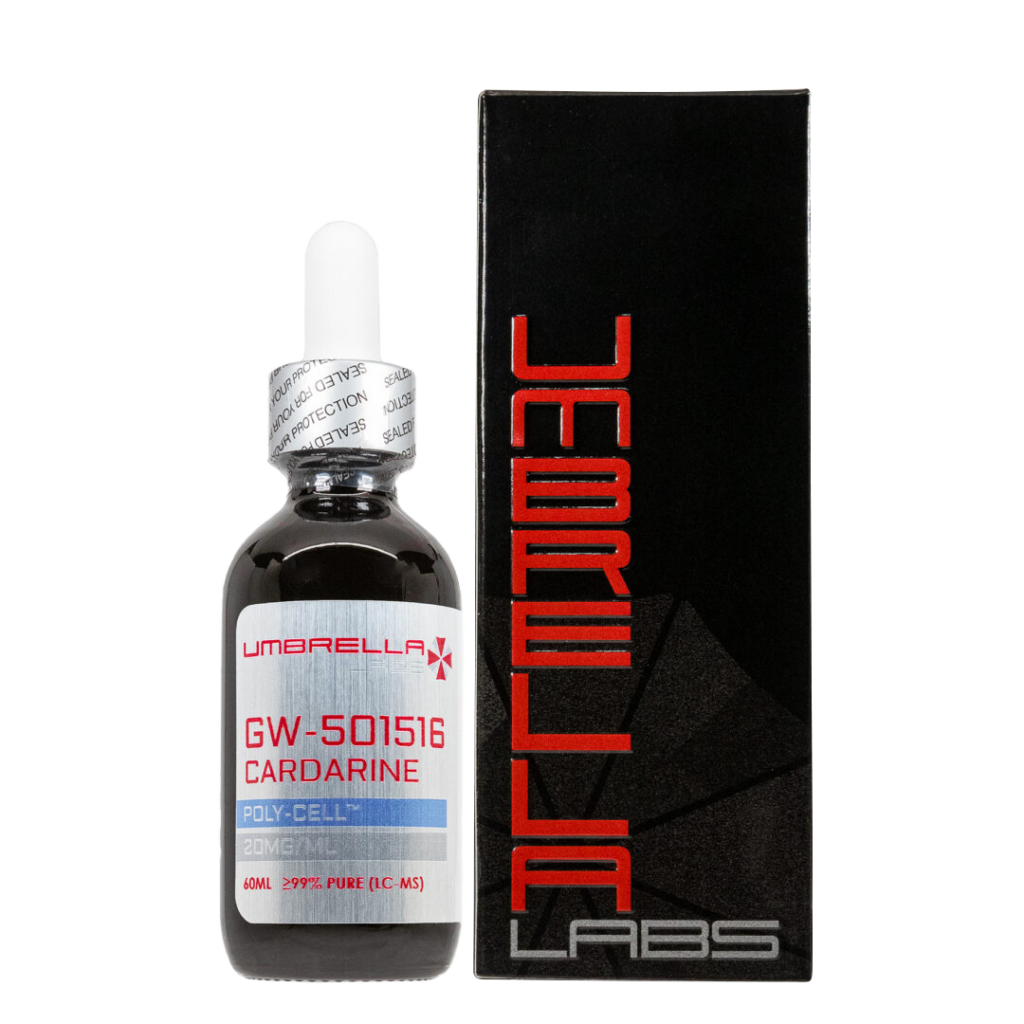
Cardarine is the popular name for the research drug GW- 501516, which embodies a remarkable compound initially designed by Ligand Pharmaceuticals and GlaxoSmithKline in the 1990s. This compound was developed to bring a drug to market that could guard against metabolic and cardiovascular diseases.
As stated earlier in this book, while Cardarine is lumped in the same category as SARMs (selective androgen receptor modulators), it has no effects on the Androgen Receptor, so it is not a SARM; in actuality, it is a PPARδ (Peroxisome Proliferator-Activated Receptor delta) agonist. We’ll talk about this a bit later.
What can you expect from using Cardarine (GW-501516)?
- Fat loss
- Endurance increase (Cardio boost)
- Cholesterol improvements
Therapeutic Aims and Benefits
Initially, the development of GW-501516 was aimed at treating the following health conditions:
Obesity: By targeting fat stores and enhancing metabolic activity.
Diabetes: Through the modulation of metabolic pathways.
Lipid Strain: By positively influencing cholesterol levels.
Cardiovascular Diseases: Through its impact on lipid profiles and energy expenditure.
Fitness Benefits
Bodybuilding and fitness users have reported substantial improvements in cholesterol levels, with LDL/HDL leveling out after usage. Also, most users report significant gains in endurance during cardio. Some anecdotal evidence suggests a boost of 100% in cardio output by using Cardarine.
The biggest plus of GW-501516 is the fat loss, and many users report “body fat melting off” as they use Cardarine.

Mechanism of Action: PPARδ Agonist
Cardarine acts as a PPARδ (Peroxisome Proliferator- Activated Receptor delta) agonist. PPARδ is one of the isoforms of PPARs, with others being PPARα and PPARγ. These receptors play a vital role in the metabolic process, specifically in the expression of genes involved in energy expenditure, lipid metabolism, and insulin sensitivity. GW- 501516, in particular, has garnered attention for its potential to enhance fatty acid metabolism and increase energy output, especially in muscle cells.
Dosing and Administration
A daily dosage of 10-20 milligrams of Cardarine is typically recommended for both men and women. Given its half- life of 20-24 hours, a single daily dosage is deemed to be effective for maintaining stable concentrations in the blood.
Side Effects and Controversies
Since Cardarine is typically well-tolerated and is not associated with hormonal imbalances, it doesn’t require post-cycle therapy (PCT). Use it and forget it kind of SARM.
Legal Considerations
Cardarine is legal for research use. However, it’s critical to note that GW-501516 has been enlisted on the World Anti- Doping Agency’s list of prohibited substances. So, if you’re a tested athlete, be careful with GW.
“Personally, I use GW-501516 to get lean and stay lean, boosting cardio for my clients. GW us best used when cutting, not bulking, as I see no reason tobe high-level athlet when you bulk up. For cutting, you feel like a switch in your genetics has been made when taking GW; you start getting leaner, and your stamina goes through the roof. I recommend it 12-16 weeks, at 20 mg per day, once per day both for men and women”
-Dylan Gemelli


